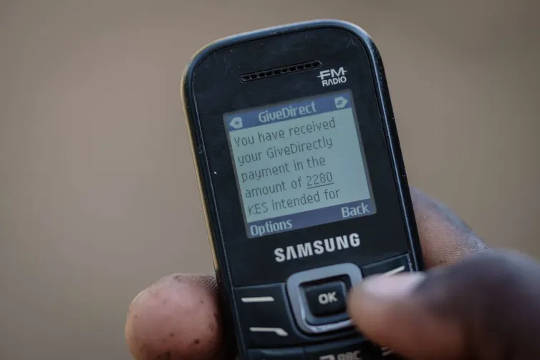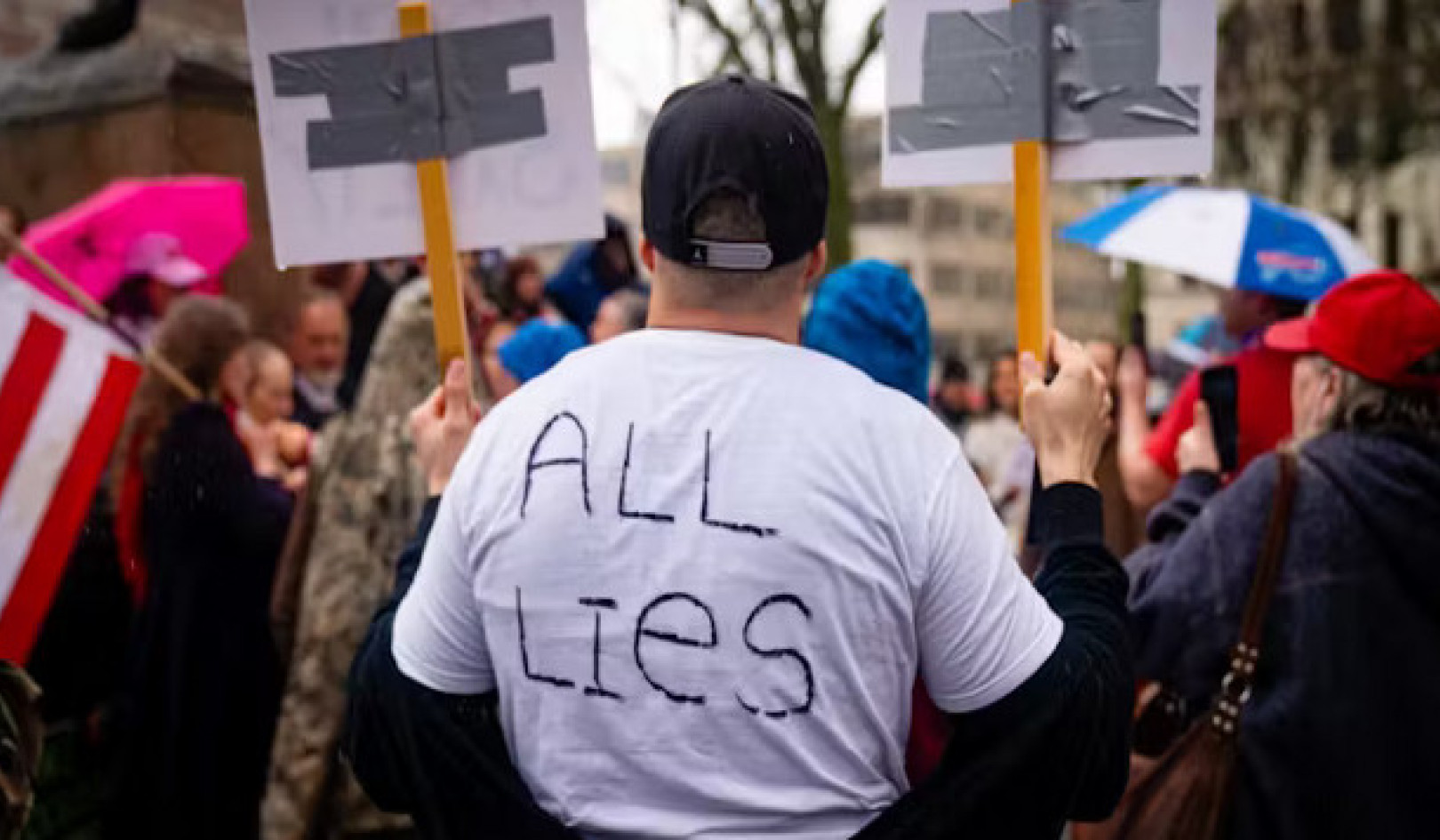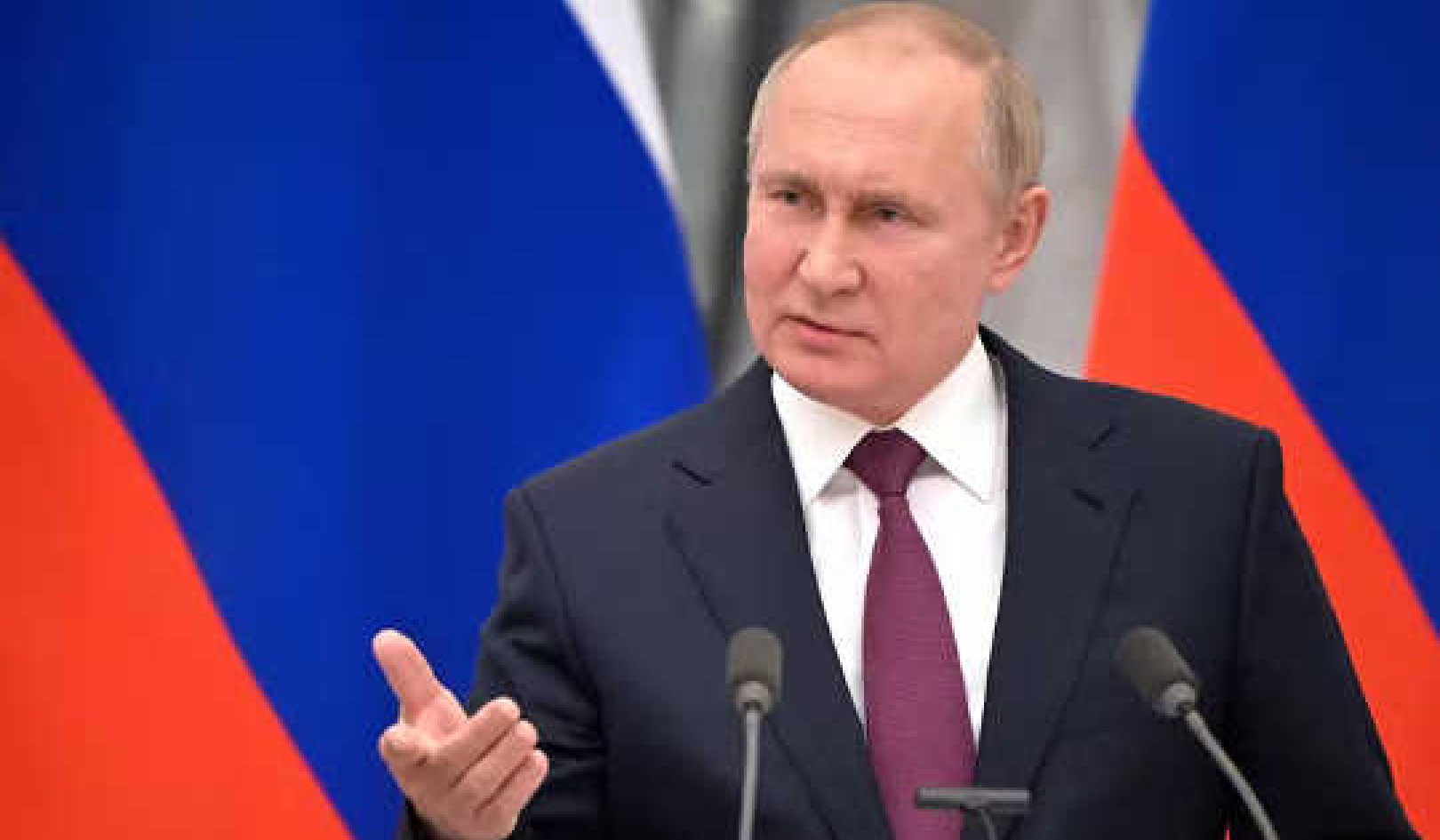
A recipient displays a message confirming a universal basic income transaction. Bondo region, western Kenya. YASUYOSHI CHIBA/AFP via Getty Images
The coronavirus pandemic is having devastating socio-economic effects on people in many parts of the world. Poverty, hunger and malnutrition are increasing; diseases – including polio, measles, and tuberculosis – are surging; and anxiety, depression, and stress are on the rise.
Could distributing a universal basic income – a modest, unconditional stipend that gives individuals enough money to get by – help people weather crises like this?
The idea of a universal basic income isn’t new. For instance, a version of basic support called Negative Income Taxes was tested in the US about 40 years ago. Basic income is now at the forefront of policy discussions across the world as some politicians have started to add it to their policy platforms. For instance, India’s Congress Party did this in the last elections.
Along with these discussions has come a renewed interest in studying its impact before it is broadly applied. There are now experiments running in several countries across the world, including Finland, Spain, Kenya, India and the US.
The onset of the coronavirus prompted my colleagues and I to look at how universal basic income affected how people coped with a severe shock.
Over the last few years, we have been investigating the effects of universal basic income on people’s well-being in Kenya. In 2017, we began an experiment in two counties – Siaya and Bomet – in which about 5,000 people started receiving US$0.75 (about Ksh75) a day for 12 years. This amount covered basic food and maybe some basic health and education related expenses.
Others (just under 9,000 adults) received that amount for two years and a third group (also just under 9,000 adults) received a one-time, upfront sum of about US$500, which was the total that the two-year group got. A fourth group – the control group – did not receive any transfers.
Many of our findings were encouraging. Most people who received some money – whether monthly or a lump sum – fared quite well relative to the control group. They experienced less hunger, sickness and depression, both before and after the country imposed restrictions in the pandemic.
But universal basic income isn’t a silver bullet. The cash supplements also encouraged people to make business investments, which were then vulnerable during the crisis. We expect our results to be useful to governments in understanding how best to help during a crisis, like this pandemic.
Pandemic responses
As coronavirus cases began to mount around the world earlier this year, Kenya’s government, like others, imposed strict limits on mobility and gatherings to prevent the virus’s spread. The restrictions had a negative effect on the country’s economy and poorer members of society.
The measures were imposed during the country’s agricultural lean season, in which food is scarcer and more expensive. The effects of the lean season were likely intensified by the pandemic-related restrictions. The two counties involved in our experiment had extremely low caseloads of coronavirus (fewer than a dozen reported cases) so any effects we find are not due to the disease, but rather the policy responses to the pandemic and their interactions with the lean season.
Nearly 70% of people in the control group reported experiencing hunger in the 30 days prior to our survey this summer (due to the lean season). Recipients of the basic income, though, were between 7% and 16% less likely to report experiencing hunger. They were between 9% and 14% less likely to have had a sickness of any kind, and they were also less depressed.
We also explored whether the cash transfers encouraged recipients to participate in activities that risked spreading the coronavirus. Having more money could make people more likely to engage in social interactions, for instance. It could also make people more likely to go to the clinic with a health concern, which, during a pandemic, could expose them to the virus. We didn’t find any such effects. Recipients were less likely to go to a hospital, and slightly less likely to have social interactions.
We can speculate why this might be. For instance, before the pandemic, the people who’d had two years of the basic income were likely healthier because they had spent some of the money on their health. They might have sought medical care more regularly and bought more nutritious foods before the pandemic. So they may have been in better shape and hence less likely to need to visit a clinic and risk exposure. As for their mental health, it’s likely that the universal basic income income relieved some of recipients’ stress.
Not a silver bullet
And yet, our study showed that universal basic income is not a silver bullet. A great benefit of guaranteed income, since it provides enough to cover basics, is that it encourages risk-taking – such as starting a business – and investment in the future.
In data we collected in 2019, we saw that the recipients were more likely to have started new businesses and see their business profits grow. But when the government instituted restrictions (during the lean season), these increased profits disappeared. However, it did allow these entrepreneurs to stay in business. In spite of the losses in profits, they were still able to sustain improvements in food security relative to the control group.
This finding underscores the limitations of universal basic income. It didn’t provide protection against the business income loss and encouraged some individuals to take on more risk before the crisis by starting a business. This isn’t a failing of universal basic income – as the main motivation for universal basic income is to help the poor with basic livelihoods – rather, it’s a reminder that it’s not designed to deal with such extreme situations as this pandemic.
Still, the ability to access income supplements clearly helped people weather the pandemic – along some dimensions such as food security and physical and mental health – and so governments should consider this as part of their response to the pandemic and to emergencies. It also leads to people taking risks, but was not able to protect the income from these investments during the crisis. In a pandemic, it may be important to protect these incomes as well, so perhaps larger one-time cash transfers may also be needed to help people and the economy deal with the pandemic.
About the Author
Tavneet Suri, Associate Professor, Applied Economics, MIT Sloan School of Management
MIT’s Abhijit Vinayak Banerjee, Michael Faye of the international charity “Give Directly”, Paul Niehaus at UC San Diego, and the late Alan Krueger of Princeton contributed to this research.
This article is republished from The Conversation under a Creative Commons license. Read the original article
Recommended books:
Capital in the Twenty-First Century
by Thomas Piketty. (Translated by Arthur Goldhammer)
 In Capital in the Twenty-First Century, Thomas Piketty analyzes a unique collection of data from twenty countries, ranging as far back as the eighteenth century, to uncover key economic and social patterns. But economic trends are not acts of God. Political action has curbed dangerous inequalities in the past, says Thomas Piketty, and may do so again. A work of extraordinary ambition, originality, and rigor, Capital in the Twenty-First Century reorients our understanding of economic history and confronts us with sobering lessons for today. His findings will transform debate and set the agenda for the next generation of thought about wealth and inequality.
In Capital in the Twenty-First Century, Thomas Piketty analyzes a unique collection of data from twenty countries, ranging as far back as the eighteenth century, to uncover key economic and social patterns. But economic trends are not acts of God. Political action has curbed dangerous inequalities in the past, says Thomas Piketty, and may do so again. A work of extraordinary ambition, originality, and rigor, Capital in the Twenty-First Century reorients our understanding of economic history and confronts us with sobering lessons for today. His findings will transform debate and set the agenda for the next generation of thought about wealth and inequality.
Click here for more info and/or to order this book on Amazon.
Nature's Fortune: How Business and Society Thrive by Investing in Nature
by Mark R. Tercek and Jonathan S. Adams.
 What is nature worth? The answer to this question—which traditionally has been framed in environmental terms—is revolutionizing the way we do business. In Nature’s Fortune, Mark Tercek, CEO of The Nature Conservancy and former investment banker, and science writer Jonathan Adams argue that nature is not only the foundation of human well-being, but also the smartest commercial investment any business or government can make. The forests, floodplains, and oyster reefs often seen simply as raw materials or as obstacles to be cleared in the name of progress are, in fact as important to our future prosperity as technology or law or business innovation. Nature’s Fortune offers an essential guide to the world’s economic—and environmental—well-being.
What is nature worth? The answer to this question—which traditionally has been framed in environmental terms—is revolutionizing the way we do business. In Nature’s Fortune, Mark Tercek, CEO of The Nature Conservancy and former investment banker, and science writer Jonathan Adams argue that nature is not only the foundation of human well-being, but also the smartest commercial investment any business or government can make. The forests, floodplains, and oyster reefs often seen simply as raw materials or as obstacles to be cleared in the name of progress are, in fact as important to our future prosperity as technology or law or business innovation. Nature’s Fortune offers an essential guide to the world’s economic—and environmental—well-being.
Click here for more info and/or to order this book on Amazon.
Beyond Outrage: What has gone wrong with our economy and our democracy, and how to fix it -- by Robert B. Reich
 In this timely book, Robert B. Reich argues that nothing good happens in Washington unless citizens are energized and organized to make sure Washington acts in the public good. The first step is to see the big picture. Beyond Outrage connects the dots, showing why the increasing share of income and wealth going to the top has hobbled jobs and growth for everyone else, undermining our democracy; caused Americans to become increasingly cynical about public life; and turned many Americans against one another. He also explains why the proposals of the “regressive right” are dead wrong and provides a clear roadmap of what must be done instead. Here’s a plan for action for everyone who cares about the future of America.
In this timely book, Robert B. Reich argues that nothing good happens in Washington unless citizens are energized and organized to make sure Washington acts in the public good. The first step is to see the big picture. Beyond Outrage connects the dots, showing why the increasing share of income and wealth going to the top has hobbled jobs and growth for everyone else, undermining our democracy; caused Americans to become increasingly cynical about public life; and turned many Americans against one another. He also explains why the proposals of the “regressive right” are dead wrong and provides a clear roadmap of what must be done instead. Here’s a plan for action for everyone who cares about the future of America.
Click here for more info or to order this book on Amazon.
This Changes Everything: Occupy Wall Street and the 99% Movement
by Sarah van Gelder and staff of YES! Magazine.
 This Changes Everything shows how the Occupy movement is shifting the way people view themselves and the world, the kind of society they believe is possible, and their own involvement in creating a society that works for the 99% rather than just the 1%. Attempts to pigeonhole this decentralized, fast-evolving movement have led to confusion and misperception. In this volume, the editors of YES! Magazine bring together voices from inside and outside the protests to convey the issues, possibilities, and personalities associated with the Occupy Wall Street movement. This book features contributions from Naomi Klein, David Korten, Rebecca Solnit, Ralph Nader, and others, as well as Occupy activists who were there from the beginning.
This Changes Everything shows how the Occupy movement is shifting the way people view themselves and the world, the kind of society they believe is possible, and their own involvement in creating a society that works for the 99% rather than just the 1%. Attempts to pigeonhole this decentralized, fast-evolving movement have led to confusion and misperception. In this volume, the editors of YES! Magazine bring together voices from inside and outside the protests to convey the issues, possibilities, and personalities associated with the Occupy Wall Street movement. This book features contributions from Naomi Klein, David Korten, Rebecca Solnit, Ralph Nader, and others, as well as Occupy activists who were there from the beginning.
Click here for more info and/or to order this book on Amazon.






















